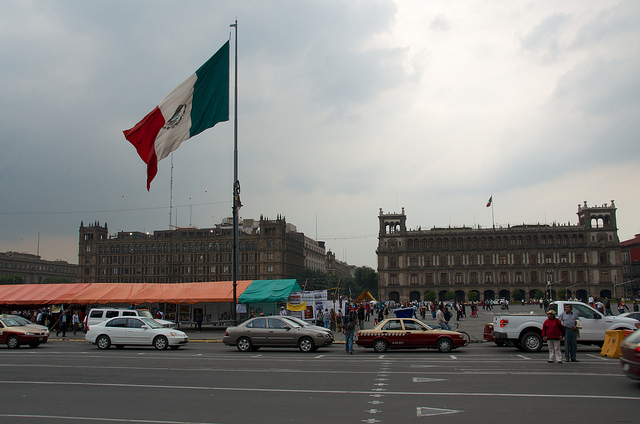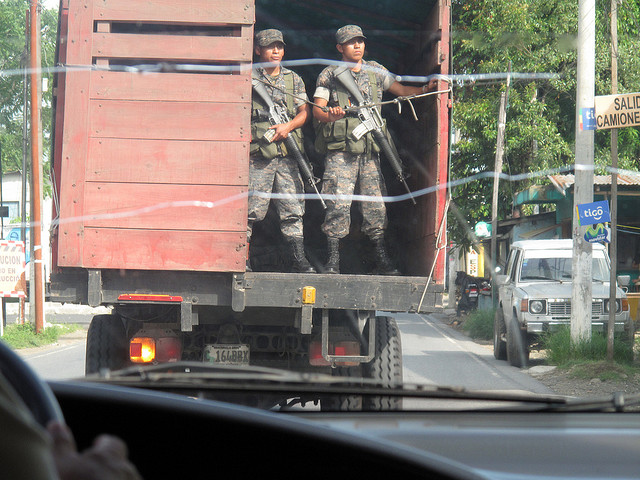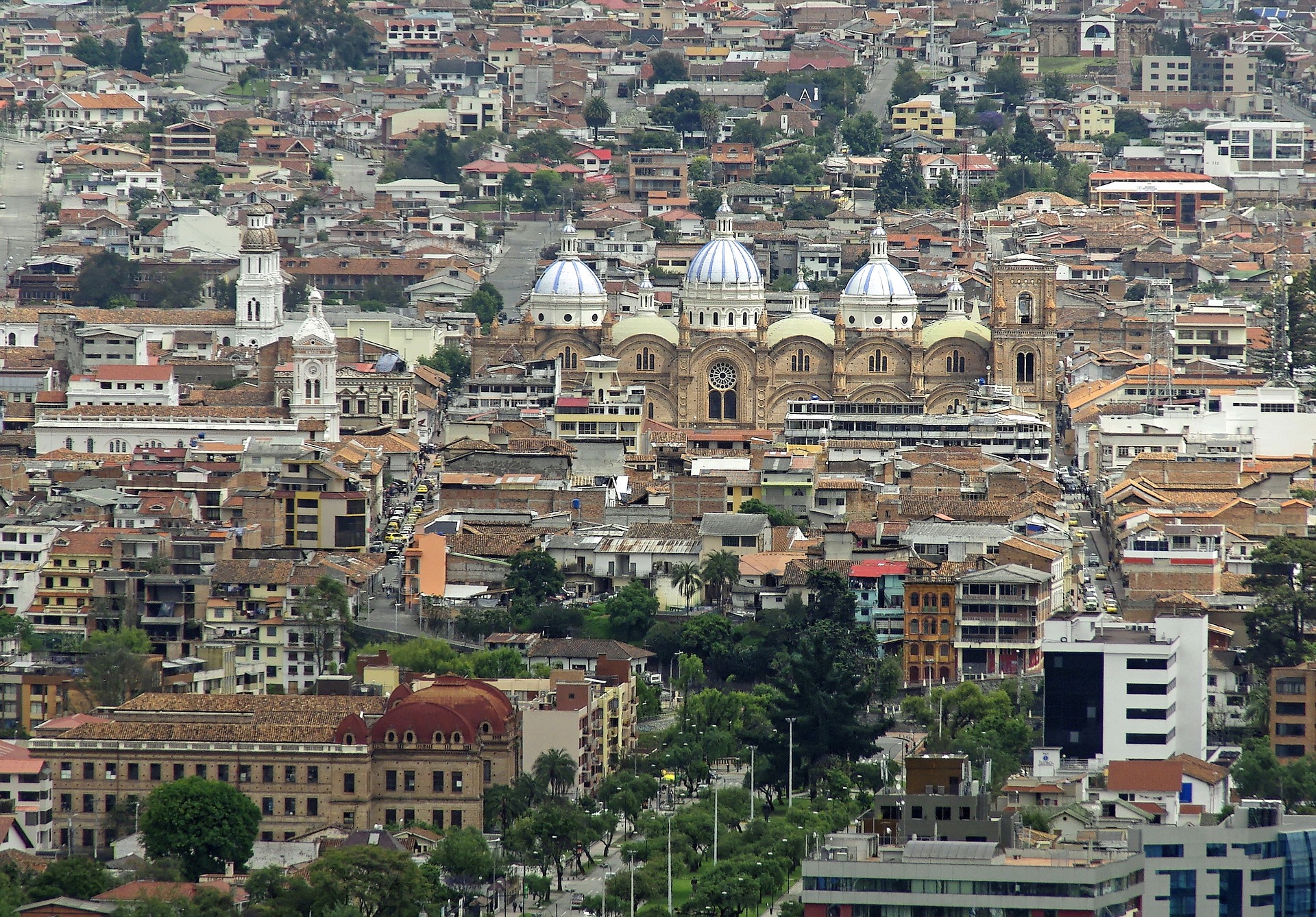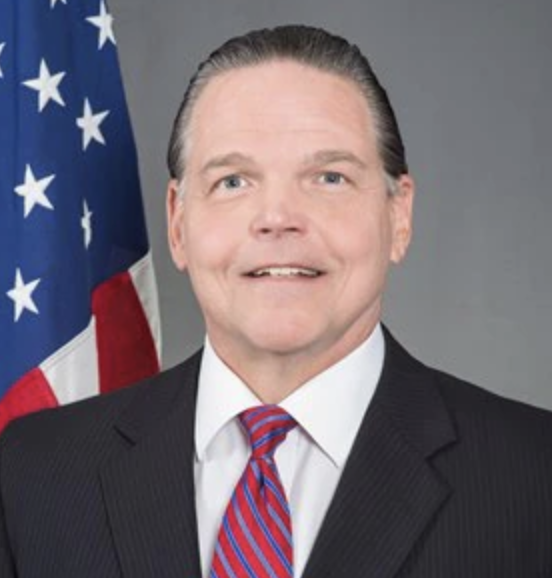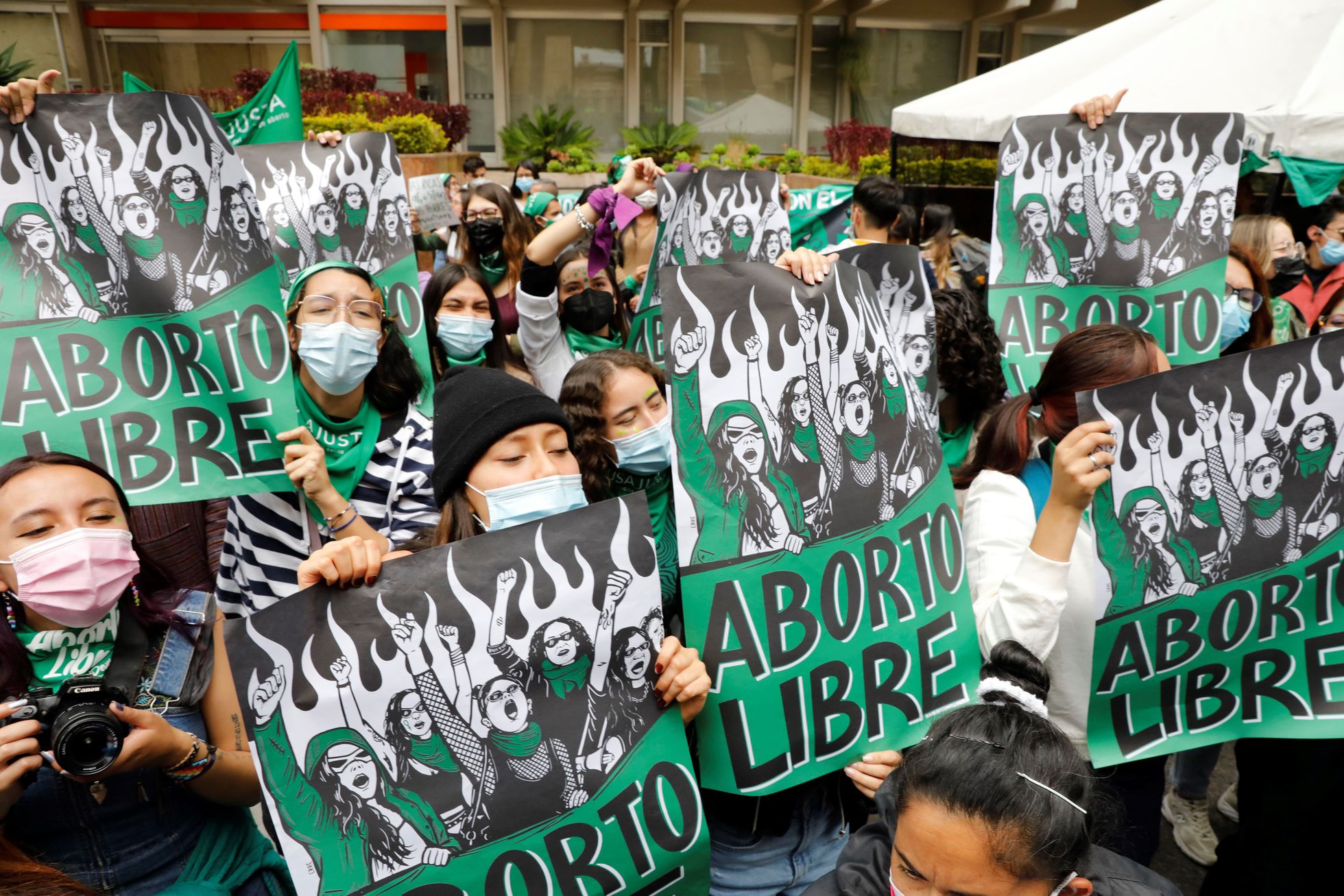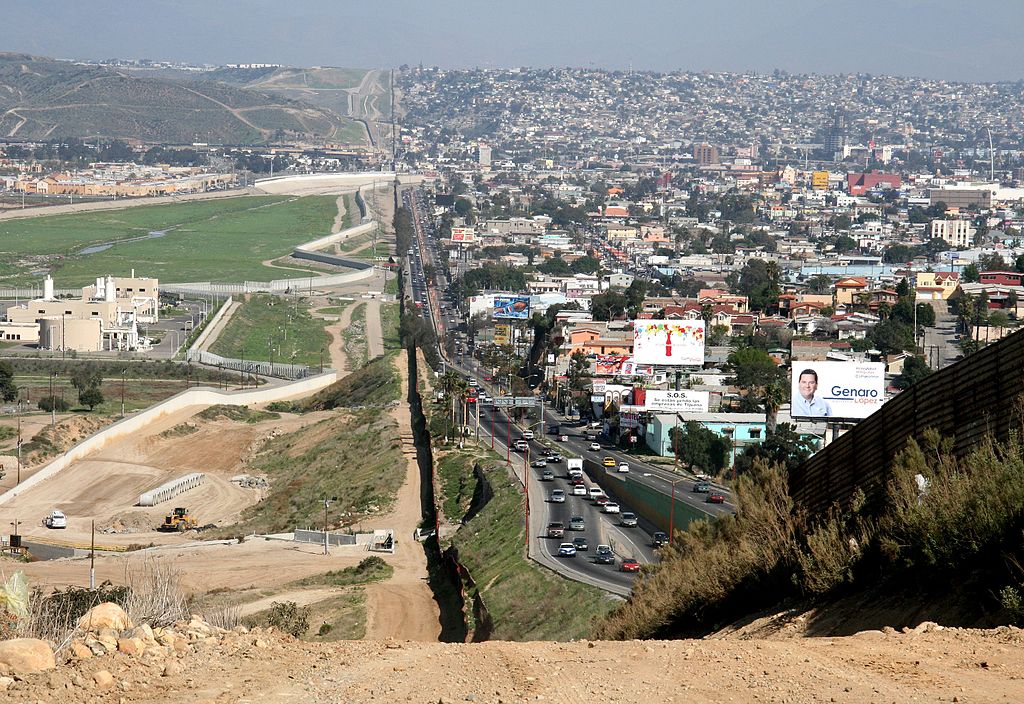
Latin America: Week in Review, North America
Trump appeals to taxpayers for border wall funding
January 9, 2019 By Staff
TODAY IN LATIN AMERICA
UNITED STATES: In the first oval office speech of his presidency, President Donald Trump yesterday attempted to move public opinion in support of funding a “barrier” at the U.S.-Mexico border. He described a “crisis” of unauthorized immigration and drug smuggling, stating that 90 percent of the heroin sold in the United States enters via the southern border. The president did not mention, however, that most of those drugs pass through legal ports of entry, nor that illegal border crossings are not higher than usual; Customs and Border Protection apprehended four times as many migrants in 2000 as 2018. What is unprecedented, authorities say, is the number of women and children arriving at the border, many seeking legal asylum in the country. In their rebuttal, Democrat leaders Nancy Pelosi and Chuck Schumer argued that the government’s treatment of asylum seekers is the crisis at the border.
Trump also claimed that the new trade deal with Mexico would “indirectly” pay for the wall, despite the fact that the agreement has not been ratified by Congress and will not be a source of revenue for the federal government. The government remains in a partial shutdown over the $5.7 billion Trump has requested to fund some version of a border wall. The standoff has held up the paychecks of about 800,000 federal workers. Trump did not declare a national emergency over border wall funding, as some analysts had predicted.
HEADLINES FROM THE WESTERN HEMISPHERE
NORTH AMERICA
UNITED STATES: The U.S. Treasury Department placed sanctions on Venezuelan media magnate Raul Gorrin and his business partner Gustavo Perdomo on Tuesday. The United States accused Gorrin of leading a graft ring that stole $2.4 billion from the Venezuelan state and gave Gorrin and Perdomo one year to divest from Globovision, the popular Venezuelan media company that Gorrin owns. “Our actions against this corrupt currency exchange network expose yet another deplorable practice that Venezuela regime insiders have used to benefit themselves at the expense of the Venezuelan people,” Treasury Secretary Steven T. Mnuchin told the AP. U.S. officials are also considering adding pressure to the Venezuelan government as Nicolás Maduro prepares to enter a controversial second term.
MEXICO: The Mexican government has announced plans to place guards at 370 border crossing points along its southern border with Guatemala. Interior Secretary Olga Sánchez Cordero said that the goal of the border guards will be to prevent another caravan from crossing into Mexico, referencing the standoffs between migrants and Mexican police that took place in October. “We have information that a new caravan is forming to enter our country in mid-January,” she told the AP. Sánchez Cordero said the government “will not allow any entry that is not orderly, safe and controlled by Mexican laws,” but pledged that it will respond to visa requests within three days.
MEXICO: Mexican President Andrés Manuel López Obrador (AMLO) announced yesterday that fuel theft gangs stealing gasoline directly from fuel plants are responsible for recent gas shortages. Soldiers dispatched to guard fuel refineries reported finding a two-mile-long hose siphoning fuel from a refinery. AMLO has ordered the use of tanker trucks to transport fuel, rather than use the usual pipelines which are vulnerable to illegal tapping and leaks, but there are not enough trucks available to transport sufficient fuel. Critics worry that the strategy will actually support illegal fuel markets.
CARIBBEAN
HAITI: A court in New York is weighing Temporary Protected Status (TPS) for Haitians in a trial that began this week. Lawyers representing Haitian immigrants are challenging the Trump administration’s efforts to cut Haitians out of the program by July 22, 2019. TPS allows citizens of several countries to live in the United States to escape environmental or humanitarian catastrophes. Approximately 50,000 Haitians were granted TPS after a 7.1-magnitude earthquake devastated the island in January 2010. Yesterday, assistant U.S. attorneys on the defense team argued that conditions have since improved, citing the closure of camps as evidence. Witnesses from human rights groups countered that assessment is too simple. If TPS is revoked, Haitians under this program will be forced to leave the United States.
PUERTO RICO: Two colonial forts in the capital San Juan were expected to reopen today after closing down in the United States’ ongoing partial government shutdown. San Felipe del Morro Castle and the San Cristobal Castle in Old San Juan were closed Monday and Tuesday as a result of the federal funding shortage in the U.S. National Park Service (NPS). Puerto Rico’s tourism authority had financially supported these two sites during the two-week shutdown, overseeing visits from 45,000 people. The NPS renewed that agreement yesterday after discontinuing it earlier this week for “operational reasons.”
CENTRAL AMERICA
BELIZE: The country’s government has agreed to cut greenhouse gas emissions in half by 2030, in accordance to the U.N.’s Convention on Climate Change (COP 24). In April 2018, experts at the U.N. Climate Change Secretariat facilitated the creation of a management system that enables Belize to determine whether their methods used for emission calculation meet international guidelines. Together with New Zealand and Costa Rica, Belize has also pledged to phase out oil production.
ANDES
PERU: Peru’s attorney general, Pedro Chavarry, resigned yesterday amid accusations that he impeded a corruption investigation involving the Brazilian construction company Odebrecht. On Dec. 31, Chavarry dismissed two prosecutors in charge of the Odebrecht investigation, leading to protests and accusations that he was protecting corrupt public officials. The Odebrecht investigation in Peru has so far targeted more than 300 people, including Keiko Fujimori and ex-President Alan García.
ECUADOR: Land iguanas were reintroduced to a Galapagos island after the species was wiped out nearly 200 years ago. The last person to record seeing the iguanas on Santiago Island was Charles Darwin in 1835. Shortly after that, the iguanas were killed off by feral pigs, which have since been eradicated, and other invasive predators. The new resident iguanas were taken from nearby North Seymour Island.
SOUTHERN CONE
BRAZIL: The head of IBAMA, Brazil’s environment agency, resigned after President Jair Bolsonaro attacked the agency in a tweet. Bolsonaro accused the agency of “financially violating Brazilians” by spending more than 28 million reais ($7.7 million) on rental trucks to patrol forests and fight fires. Suely Araujo fired back at Bolsonaro, saying he made “baseless accusations” about IBAMA’s budget. During the campaign, Bolsonaro regularly attacked IBAMA, sparking fears about higher rates of deforestation in the Amazon.
BRAZIL: A gang attempted to blow up a bridge and burned at least four buses and a construction site near the city of Fortaleza Monday night. Criminal gangs in the northeastern state of Ceará have carried out violent attacks recently in apparent retaliation against the government’s attempts to regain control of the state’s gang-run prisons. In response to the attacks on public buildings and infrastructure, authorities have arrested more than 160 people and members of the National Police Force have been deployed to Ceará. The violence is one of the first tests facing new President Jair Bolsonaro, who campaigned on reducing crime.
< Previous Article
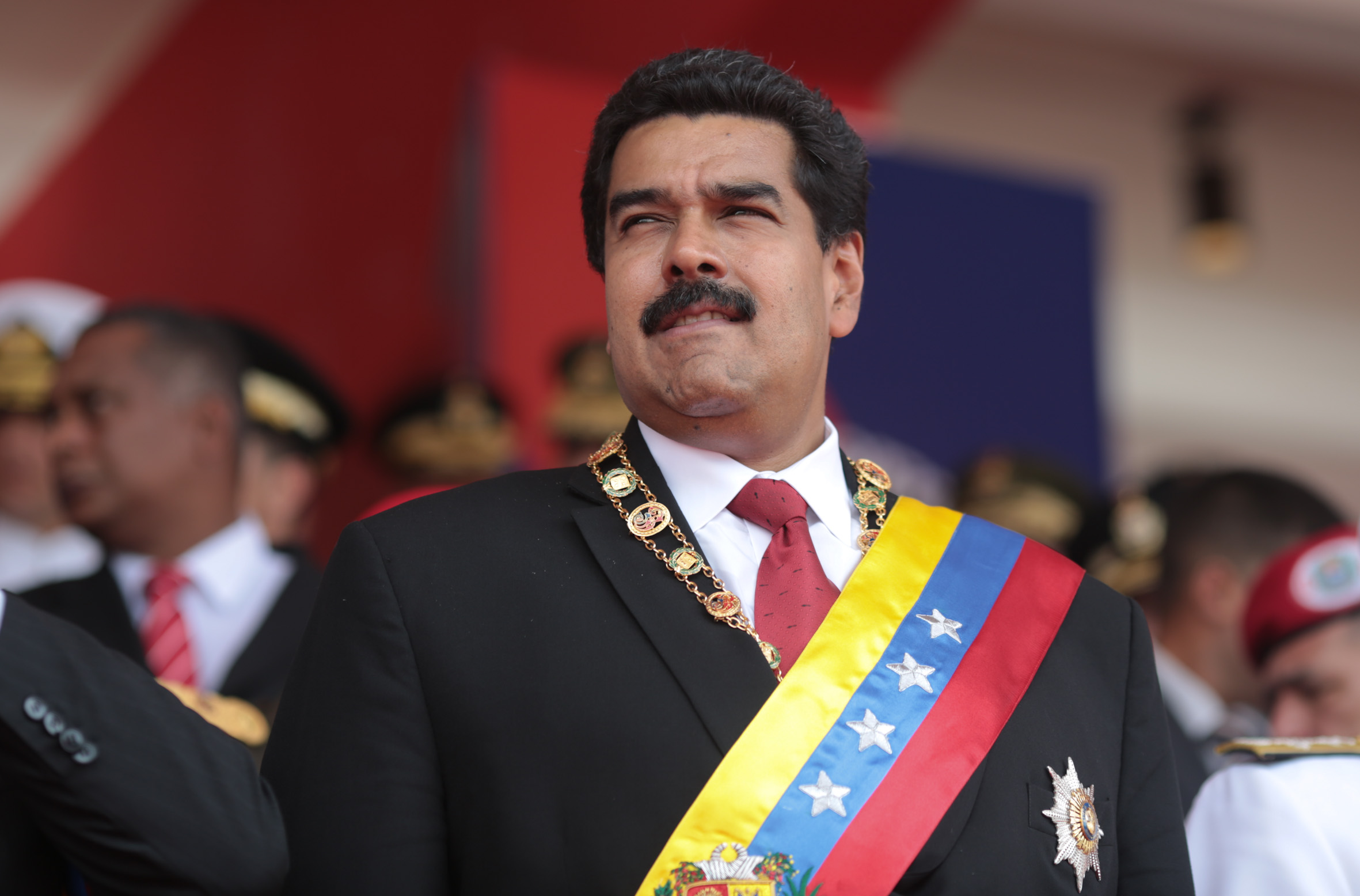
January 8, 2019 > Staff
Venezuelan Supreme Court Justice Defects to the United States
Next Article >
